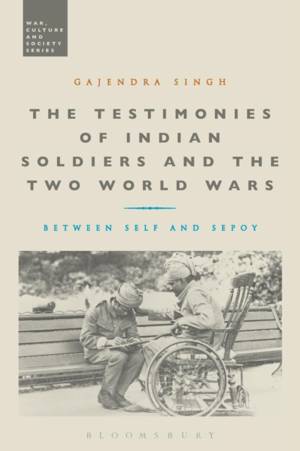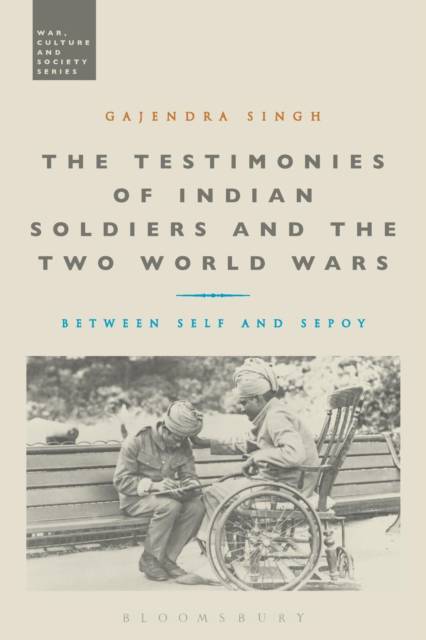
- Afhalen na 1 uur in een winkel met voorraad
- Gratis thuislevering in België vanaf € 30
- Ruim aanbod met 7 miljoen producten
- Afhalen na 1 uur in een winkel met voorraad
- Gratis thuislevering in België vanaf € 30
- Ruim aanbod met 7 miljoen producten
Zoeken
€ 88,45
+ 176 punten
Uitvoering
Omschrijving
In the two World Wars, hundreds of thousands of Indian sepoys were mobilized, recruited and shipped overseas to fight for the British Crown. The Indian Army was the chief Imperial reserve for an empire under threat. But how did those sepoys understand and explain their own war experiences and indeed themselves through that experience? How much did their testimonies realise and reflect their own fragmented identities as both colonial subjects and imperial policemen?
The Testimonies of Indian Soldiers and the Two World Wars draws upon the accounts of Indian combatants to explore how they came to terms with the conflicts. In thematic chapters, Gajendra Singh traces the evolution of military identities under the British Raj and considers how those identities became embattled in the praxis of soldiers' war testimonies +" chiefly letters, depositions and interrogations. It becomes a story of mutiny and obedience; of horror, loss and silence. This book tells that story and is an important contribution to histories of the British Empire, South Asia and the two World Wars.
The Testimonies of Indian Soldiers and the Two World Wars draws upon the accounts of Indian combatants to explore how they came to terms with the conflicts. In thematic chapters, Gajendra Singh traces the evolution of military identities under the British Raj and considers how those identities became embattled in the praxis of soldiers' war testimonies +" chiefly letters, depositions and interrogations. It becomes a story of mutiny and obedience; of horror, loss and silence. This book tells that story and is an important contribution to histories of the British Empire, South Asia and the two World Wars.
Specificaties
Betrokkenen
- Auteur(s):
- Uitgeverij:
Inhoud
- Aantal bladzijden:
- 312
- Taal:
- Engels
- Reeks:
Eigenschappen
- Productcode (EAN):
- 9781474247870
- Verschijningsdatum:
- 30/07/2015
- Uitvoering:
- Paperback
- Formaat:
- Trade paperback (VS)
- Afmetingen:
- 156 mm x 234 mm
- Gewicht:
- 430 g

Alleen bij Standaard Boekhandel
+ 176 punten op je klantenkaart van Standaard Boekhandel
Beoordelingen
We publiceren alleen reviews die voldoen aan de voorwaarden voor reviews. Bekijk onze voorwaarden voor reviews.








